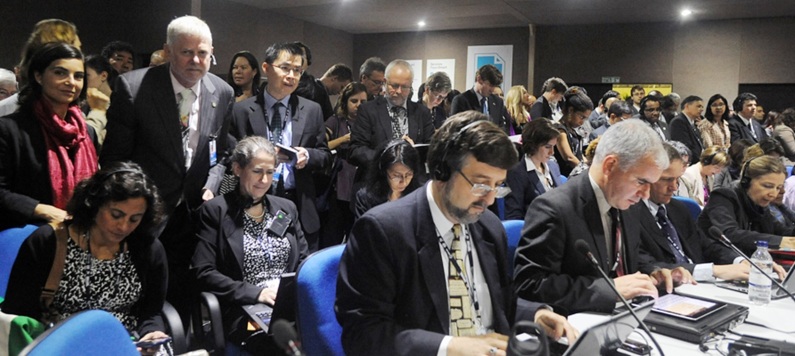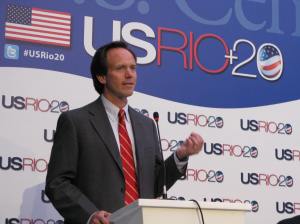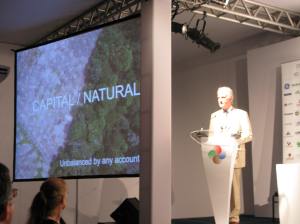
In June 2012, I attended the UN Conference on Sustainable Development (better known as Rio+20) as part of a Collaborative Event Ethnography. This research group, which had first been assembled around an NSF grant several years earlier to study the UN Convention on Biological Diversity, had its hands full that summer in Rio.
International environmental conferences (Rio+20 being the largest ever held, attracting over 50,000 participants) represent important sites where elite political actors can try to maneuver preferred policy narratives into widely accepted, authoritative accounts upon which particular policies, governance devices, and institutional structures can arise. While ostensibly structured around the negotiation of agreements between states, my attention at the mega-conference was fixed elsewhere and in fact in the opposite direction.

When I began to turn around, my back facing the 30-foot projected Microsoft Word document (I had no idea word processing was such a central part of these processes), I began to recognize where a lot of the real action was taking place. I saw intent, listening audiences, thousands of people, pulled from myriad organizational contexts, roles, and areas of expertise, assembled from around the world, and immersed in the rituals of the event. Here, networking like crazy with one another, they were subjected to a structured social encounter within which certain ideas (i.e. the ones whose influence I’m tracing) could become persuasive, compelling, and accepted within that social space. For some, these events present affective, liminal spaces (akin to summer camp?) where identities get cajoled, new ways of understanding get tried out and adopted, and particular roles get to be performed and reconstituted. In more mundane terms, there can be tremendous pressures at these things; delegates get tired, kept in suspense, jerked back and forth from high hopes to dashed ambitions. Among everything else that these events represent, they are excellent sites for students of environmental politics like myself to access these elite, transnational policy networks: here, as they come together in a concentrated moment in space and time, they become especially visible to researchers.


At Rio+20, under these conditions, I got to observe corporate CEOs, UNDP officials, celebrity conservationists, World Bank technocrats, eminent biologists, a series of Prime Ministers, heads of state, at least one prince, the guy from Fight Club, and many others, announce in various venues and in various formats that they’d joined together around the idea of natural capital.
